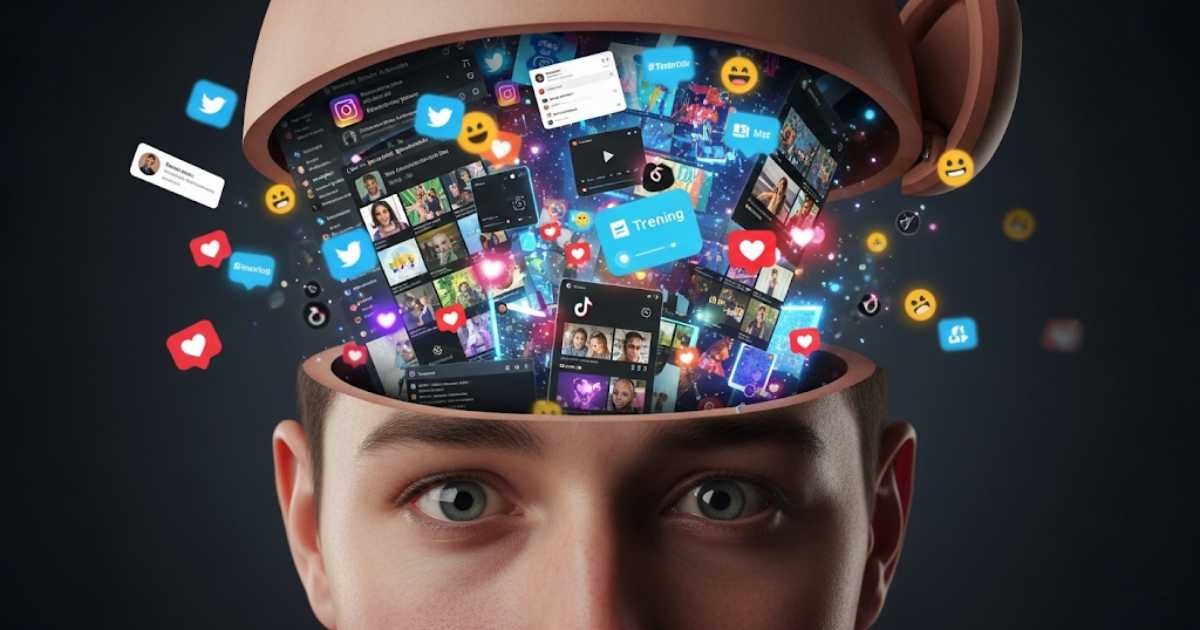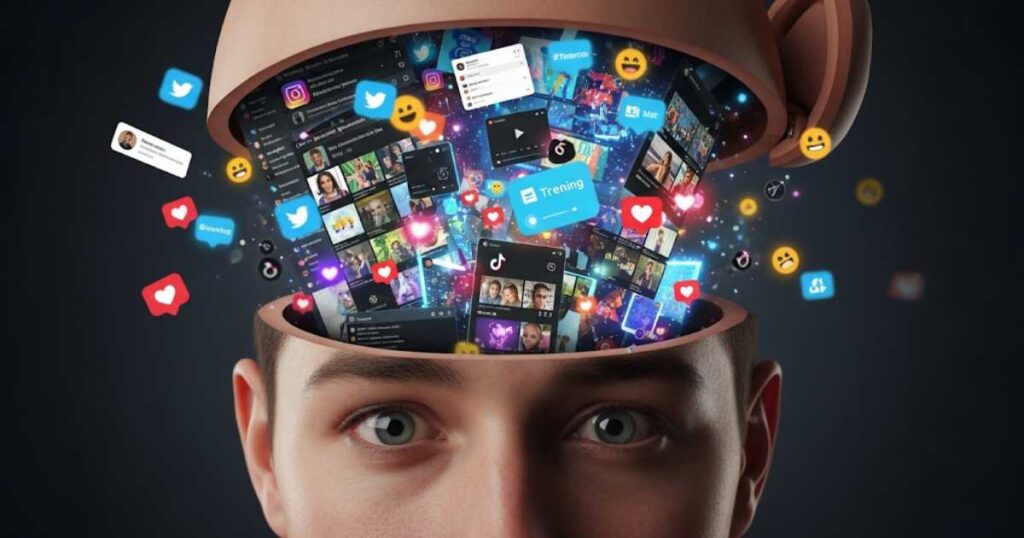If you have ever opened TikTok for a “quick five minutes” and suddenly realized an entire hour has passed, you know the feeling of falling into the endless scroll. It feels harmless at first. Just short videos, a laugh here, a tip there, maybe a trending sound or a quick story. But many people now ask themselves a serious question: is this constant diet of short videos actually damaging our ability to focus?
To understand this, we need to look at the brain. TikTok is built on short-form content, often just 15 to 60 seconds long. Every new swipe gives the brain something fresh: a new sound, a new face, a new joke, a new idea. This constant novelty triggers the release of dopamine, a chemical linked to pleasure, motivation, and reward. Dopamine itself is not bad. It is what pushes us to eat, learn, and explore. But when it is triggered again and again in rapid bursts, the brain starts craving that instant reward.
This is where attention span gets involved. Attention is like a muscle. The more we practice focusing for long periods, the stronger it becomes. Activities such as reading a book, listening to a lecture, or solving a problem all require sustained attention. But when most of our daily stimulation comes in tiny bursts, the brain adapts. It gets trained to expect rewards quickly. Instead of patiently working through a task, it becomes restless and distracted, waiting for the next quick hit.
Scientists have studied this pattern. Research shows that heavy use of fast-paced digital platforms can affect the brain’s attention networks. The prefrontal cortex, which helps with focus and decision making, becomes overstimulated. This makes it harder to delay gratification. It is easier to scroll for another video than to sit down and write an essay, finish a work project, or even watch a two-hour movie without checking your phone.
The problem is not limited to TikTok alone. Other platforms like YouTube Shorts, Instagram Reels, and even fast memes on X (formerly Twitter) use the same formula. But TikTok has mastered the art of keeping people hooked. Its algorithm learns what you like frighteningly fast. That is why the app feels so personalized, like it knows you better than your friends do. This keeps you watching longer, and the longer you watch, the more your attention span gets pulled toward short, rapid bursts instead of deep, slow focus.
You might ask: does this mean TikTok is destroying an entire generation? Not necessarily. Like junk food, the app itself is not evil, but consuming too much of it has consequences. Watching a few videos for fun can be harmless. The issue comes when it becomes the main source of entertainment and replaces activities that build focus, patience, and deep thinking.
Think about it. When was the last time you read ten pages of a book without grabbing your phone? Or listened to someone’s story fully without interrupting? Many people now find these simple tasks harder than before. It is not that they suddenly became lazy. Their brains have been rewired to prefer fast stimulation.
This rewiring especially affects younger people. The teenage brain is still developing, and habits formed at this stage leave deep marks. If a teenager spends hours each day training their brain to expect constant novelty, it can make studying, concentrating, or even enjoying slower hobbies much harder. Some teachers already report that students find it difficult to stay engaged in class because their brains are used to fast, changing content.
So what can be done? The answer is not to delete TikTok forever. Balance is the key. Here are a few practical steps:
- Set limits. Instead of scrolling until your eyes hurt, give yourself a time frame. Ten to twenty minutes of TikTok can be enjoyable without letting it eat your entire evening.
- Train deep focus. Read a chapter of a book, write in a journal, or work on a puzzle without distractions. These activities are like exercise for your attention muscle.
- Practice mindfulness. Simple acts like focusing on your breathing, eating a meal slowly without checking your phone, or going for a walk without headphones can help your brain slow down.
- Use apps wisely. Many phones now have screen time controls. Setting reminders or limits can make a real difference.
- Mix your entertainment. Watch long videos, listen to podcasts, or engage in conversations. This gives your brain different rhythms of stimulation, not just fast and short.
At the end of the day, TikTok is not going away. It is part of our digital culture. But our brains are not designed to live only on fast food content. Just like the body needs proper meals along with snacks, the brain needs long, focused experiences along with short bursts of fun. If we are not careful, we risk building a generation that struggles with patience, focus, and deep thinking.
So, is TikTok ruining attention spans? The honest answer is yes, if it dominates your daily life. But no, if you use it in moderation and balance it with healthier habits. The choice is not in the app’s hands. It is in yours.



